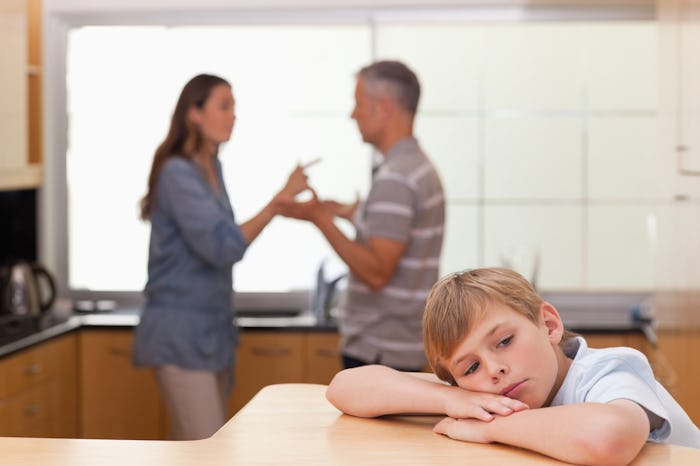Life

4 Ways Screaming Affects Your Child Down The Line
I grew up in a household of yellers. To be fair, my family members are loud talkers, so when they wanted to raise their voices, my parents resorted to shouting, and sometimes even screaming. It wasn't until I had my own kids and found myself raising my voice a lot that I began to research the question, "how does screaming affect your child later in life?"
To answer that question, it's important to learn why parents yell. According to Healthline, parents most often yell when they feel overwhelmed and angry. These emotions often translate into raised voices, which when directed toward a disobedient child, will only temporarily placate the situation. The New York Times suggested that parental yelling can also be the releasing of pent up stress that comes with being the kind of multitasking, overachieving adult that 21st century parents are expected to be.
In previous generations, spanking, whipping, and other forms of corporal punishment were the disciplinary norm. It wasn't uncommon for an angry, stressed-out parent to turn to physical punishment. As spanking has become reviled, many parents have turned to yelling or screaming as a form of discipline. But is screaming any less traumatizing for children than spanking? The answer may be, no.
Here are some ways screaming can affect your child later in life.
1It Increases Aggression & Anxiety
According to a study by researchers Ming-Te Wang and Sarah Kenny published in the journal Child Development, shouting, cursing, or yelling can be as detrimental to the long-term well being of a child as physical violence. This supports a previous Child Development study by Elizabeth T. Gershoff and colleagues which found that corporal punishment and yelling were both associated with increased child aggression and anxiety.
2It Makes Kids Susceptible To Bullies
The aforementioned Healthline article suggested that kids who are regularly yelled at, often have a skewed understanding of healthy boundaries and self-respect. This can make them easy targets for bullying now, as well as in the future in the workplace and in relationships.
3It Can Cause Depression & Low Self Esteem
Parents noted that if raised voices turn into belittling this is known as harsh verbal discipline. Also known as HVD, this is more specifically defined as a "psychological force with the intention of causing a child to experience emotional pain or discomfort for the purposes of correction or control of misbehavior." HVD makes children susceptible to depression and feelings of low self-esteem, especially if they are told that they are useless, worthless, or inferior. These feelings can stick with them through adulthood.
4It Creates Trust Issues
Parents also suggested that kids who are regularly yelled at, or those whose parents use HVD, can have long-term issues with trust. Verbal punishment limits a child's willingness to trust his parent and in the future they may have problems trusting a spouse.